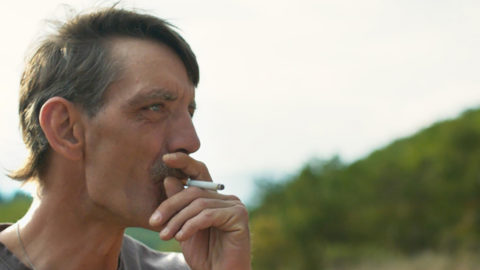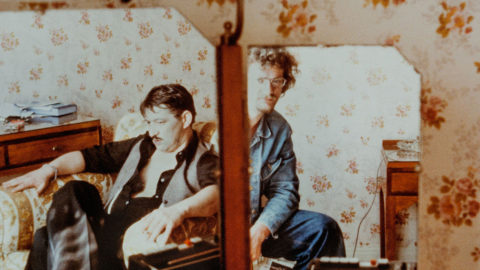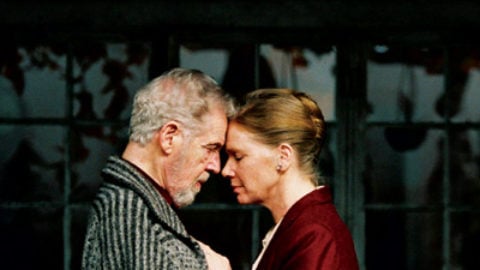Interview: Margarethe von Trotta
Every year, Cannes Classics does double duty as a showcase for new restorations and for documentaries about films and filmmakers. Searching for Ingmar Bergman belongs to an unofficial subset—the portrait of one auteur by another. And while there has been no shortage of movies about Bergman (or Fårö, for that matter), the latest arrives from an intriguing source: Margarethe von Trotta (collaborating with co-director Felix Moeller). A fixture of the feminist canon for films like The Lost Honor of Katharina Blum (1975) and Sisters, or the Balance of Happiness (1979), von Trotta has seen a resurgence of interest in the past decade with Hannah Arendt (2012) and Vision (2009) and their compelling portrayals of figures of determination and brilliance. In Searching for Ingmar Bergman, she meets with Liv Ullmann, Olivier Assayas, and Ruben Östlund, among others, to map Bergman’s legacy of bracing psychological candor and female characterization for another generation. Film Comment spoke with von Trotta in the thick of the festival (during which she was hoping to see Alice Rohrwacher’s latest) about her new film and her thoughts on her own cinema and the industry. Oscilloscope will release Searching for Ingmar Bergman later this year.
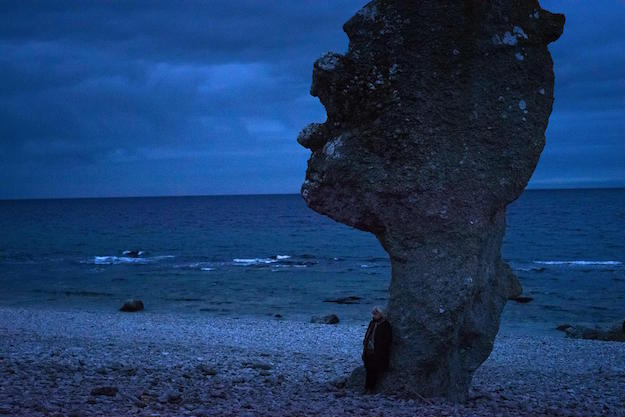
You begin your documentary by describing the run-up to the chess sequence in The Seventh Seal, virtually shot by shot. It’s evident how immediate Bergman’s film remains for you.
Absolutely. That was the first Bergman film I saw but also the very first film that shocked me so much that I was blown away with admiration. Before, I didn’t go to the cinema to see good films. It was just entertainment. We went to theater and concerts and operas and exhibitions, but cinema in Germany in the ’50s or early ’60s was not very important for us. So when I went to Paris and saw this Bergman film, that was the first time I saw really good cinema. And I immediately had the wish, the desire, to become a filmmaker. But in these times, it was absolutely impossible for a woman to think of that. So I didn’t say it loudly—it was just in my mind and in my heart. And then I managed to become a filmmaker. I’m really grateful to Bergman because he opened my eyes—very wide open, not wide shut—to cinema.
Your movies allow for cinema’s possibilities as a political art form. Rightly or wrongly, Bergman is perhaps regarded less as an explicitly “political filmmaker.” How do his movies fit into that aspect of your work?
You know, I never did political films with the purpose of doing political films. It was not, “I have to think about this or that political thing.” It was that I have to find a person who I follow, and then, sure, it comes up—because if this person lives in a certain time surrounded by political facts, then it comes into the film. But my first aim is never to make a political film. It’s to make a film about people who live in a certain time, and I am portraying the time. Bergman chose my film Marianne and Juliane [as one of his 11 favorite films], and that is a political film too if you look at it. But it’s also a film about two sisters and a priest as a father who is earnest and harsh. I think he looked at my film with this intention, to see the human face. He says in the documentary, “I am making films about the human condition,” and it is the same for me.
I understand your question, because the Swedish also say they looked at Bergman as old-fashioned cinema or the cinema of papa because he didn’t enter this sphere of politics and the rebellion of 1968 and afterward. But I think he’s the one who survives because he didn’t go with the times. He went into the psyche, into some country much deeper than just looking around in the moment, ja?
Absolutely—you watch, say, Persona and it is just as astonishing as ever.
Persona! It’s astonishing. Nobody is doing a film like this today. It’s courageous and so extreme in its experiments. So you can’t say it’s Papas Kino [papa’s cinema]!
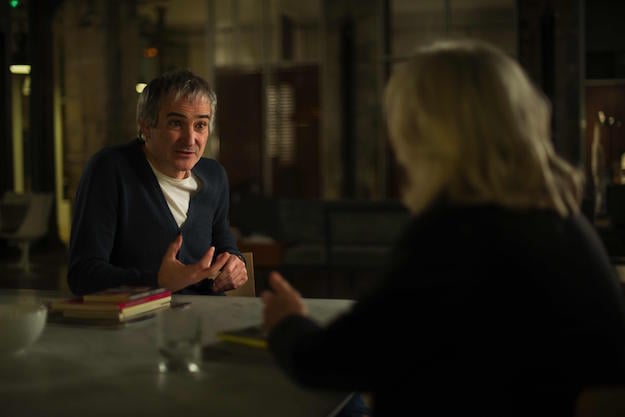
Why do you think his work is viewed as old-fashioned?
Maybe psychoanalysis is not so modern [to people]. But on the other hand, more and more people go to psychiatrists to heal themselves. So on the one hand, they don’t want to know, but on the other hand, they need it to be looked at as a person and not only as someone in the market.
What specifically about his movies impressed you as a filmmaker?
I was already so implanted with his films that when I started, I could forget them totally but they were in me. So I used some of his way of making or showing relationships between women, for example, in a way that is close to him but without imitating. You have to not imitate—that’s terrible. I was already so much into his world that I put it into my world, but then I brought out different things than he did. So I mixed up these two worlds, and that is my cinema.
Beyond the power of the filmmaking, your work is an education in itself, from The Lost Honor of Katharina Blum to Hannah Arendt and Vision about Hildegard of Bingen. Do you view it as a larger project of bringing a new understanding to our history of the world?
No, even when I did a film about Rosa Luxembourg or Hannah Arendt, I didn’t choose them myself. They always come from a producer. I didn’t choose Bergman. That was a producer that insisted I do the film. In a way, I let them convince me. I wouldn’t dare to touch these big figures because I never think that I can really give them what they merit and need as figures. But then when an idea is put in my mind, it starts to work inside of me without my knowing it. Then I try, and during the whole [process], I’m always anxious that I’m not really able to do it well. And this anxiousness follows me to the very end. It’s always a fight. I am fighting for these people I have to portray, and I am fighting with me and my weaknesses.
In the end, it seems as if I’m making a historical atlas. Everybody tells me about Rosenstrasse [2003] that they didn’t know about those women who protested in Berlin [in 1943] to get their Jewish husbands out of prison. There’s always some learning with my films, but you learn not like out of a historical book. You learn out of the emotions you have in looking at the films. And I think emotional learning is much more important and stays with you longer than if you do it only intellectually.
That’s something you also achieve with the portrayal of thinking in Hannah Arendt, showing the fervent emotion within that act.
Yes, how she thinks, and how to make thinking passionate. In the beginning when I said I would do a film about Hannah Arendt, it was, “Oh my God, it’s a philosopher, what will you show there, that will be boring.” No, I hope I present thinking as a passionate action. I think that went well.
When I first saw The Lost Honor of Katharina Blum, I was struck by its portrayal of contemporary German society at that moment in the 1970s, so ready to pounce—not only the political ramifications but also the experience of living within that world, and how it feels to be under attack like that.
It’s even more so now, because everybody has the ability with your cellphone to immediately share your meaning and sometimes your hate and all these terrible feelings you have—to give it away to so many others. It becomes very dangerous, much more so than in the time of Katharina Blum. Now with this popular right-wing party, AfD [Alternative für Deutschland, or “Alternative for Germany”], what we have is exactly what the Bild-Zeitung did in the time of Katharina Blum. But that was only one newspaper which was radically right-wing and popular. Now it’s a whole party who are speaking exactly like the Bild-Zeitung did then.
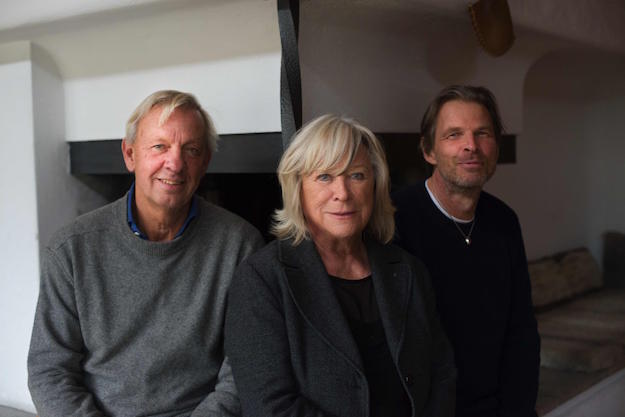
There is also a good side to the power of new media in the revolutionary possibilities of bringing people together for good causes.
For me it’s like the fight I did from the ’70s with my other female colleagues. We fought for so many years to get the same rights in filmmaking that men had or still have. We got attention and all of a sudden our male colleagues said yes, yes, we have to understand and help the women to get their rights. And then came the backlash. Then all of a sudden it was silent, and it was just as if we didn’t speak before. This #MeToo wave is much bigger, and I like this new movement, but I really fear there will come a backlash again. It’s perhaps this way with every movement: it helps us to go a little bit further.
But it will not be the end of the fight. I’m too old to have that hope anymore. [Laughs] I have made films for 40 years now, and I did a lot of fighting and I was one of the first women in Germany to make films, and there are many, many more women—but there are not enough. There are only three women here in the festival [the Cannes competition, which has 21 films total], and they did it only because women screamed so much and were enraged. And so they got three women?



